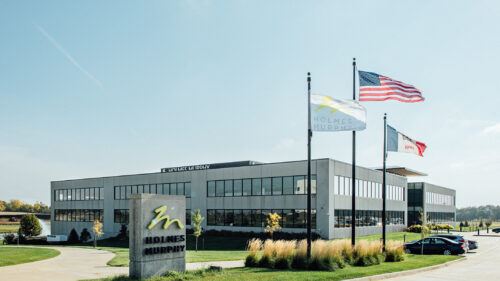I recently attended a symposium at Pepperdine University titled “Healthcare Leadership in the AI Revolution.” What struck me as I was sitting in the room with more than 500 others intrigued by the content is that there were people from all industries, all backgrounds, all walks of life trying to get a glimpse into what’s next for the healthcare industry.
I’ve spent my entire (almost 20-year) career embedded within health systems trying to focus on preventing and improving health to keep people out of the hospital. I’ve been in the bowels of a cold, dark basement of a 1,000+ bed facility and know it’s no place you want to be for long. But when you do need services, I know this for sure — you want the safest, highest quality, compassionate care you can get. And what I heard from the dynamic speakers at this seminar is that seems to be the opposite of where we’ve moved within healthcare. Remarkably enough, AI could be just the key to bringing that back to life.
REALLY? OK, so maybe I drank the AI Kool-Aid, but I do believe it can change the future of healthcare for the better. And not just by robots taking over surgeries or eliminating medical personnel…that won’t happen for another 45 years they say.
But until then, the AI as we know it should be defined in my opinion as Augmented Intelligence, not Artificial Intelligence, because it’s going to take humans to actually make AI work. And guess what? There are humans out there today doing just that!
Everything from personalized diets analyzing your gut microbiome and asthma inhalers tied to your iPhone to Radiologists using AI to analyze mammograms and detect less false positives or negatives and speech recognition being used so the doctor can just talk and it will transcribe their diagnosis directly into the medical record. Talk about making healthcare human again — wouldn’t it be fabulous if our doctors could actually look at us during a visit instead of looking into their computer because they have to type every thought in their head into a note section within the black hole of an electronic medical record?!
Lucky for me, I’ve transitioned roles to an organization that already sees tremendous value in AI. Holmes Murphy is using AI within its data analytics engine as we try to predict those at risk for disease by using more than just the standard medical claims we’re used to seeing. We call it CLUE — Clinical Learning and Understanding Engine. CLUE encompasses our reporting system powered by IBM Watson Health as well as custom reporting and insights created by our very own Health Asset Managers.
Can you believe there are actual “clues” in humans that let us know if they’re more likely to develop a disease?! It’s true. And the great news is that if you get to it sooner than later, you can do something to impact it and reduce the cost and burden of disease.
AI is everywhere these days…even McDonalds. In my AI dream world, it would somehow motivate you to never supersize again. Maybe in 45 years we’ll get there. And yes, healthcare is usually the lagging industry. I’m still hopeful this is one area they might be willing to move faster on.
In the meantime, if you take a sip of the AI Kool-Aid and find it tantalizes your taste buds, give me a shout. I can share the Holmes Murphy AI recipe with you. And while I may not give away all the ingredients, I can promise you this — the final taste will involve saving time, money, and lives. And, I think we’d all agree that’s a flavor everyone likes.







